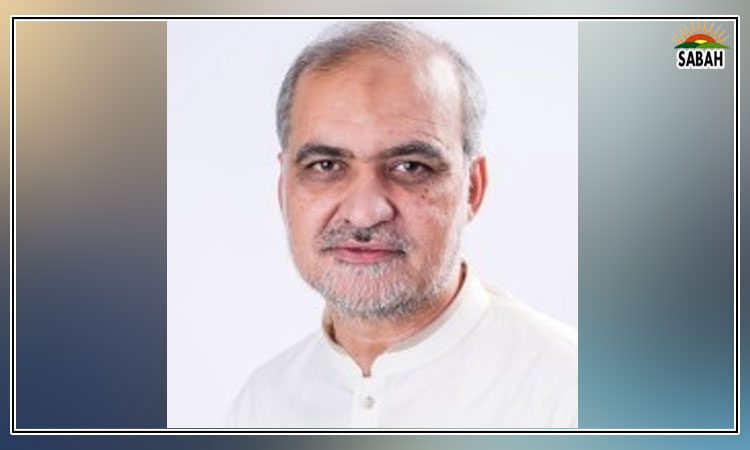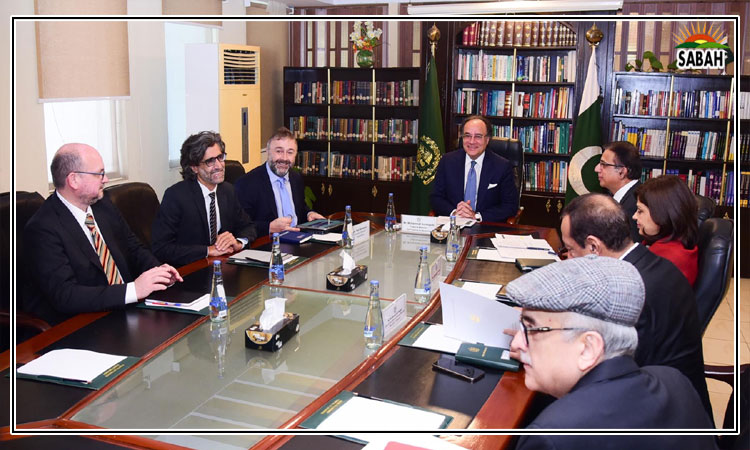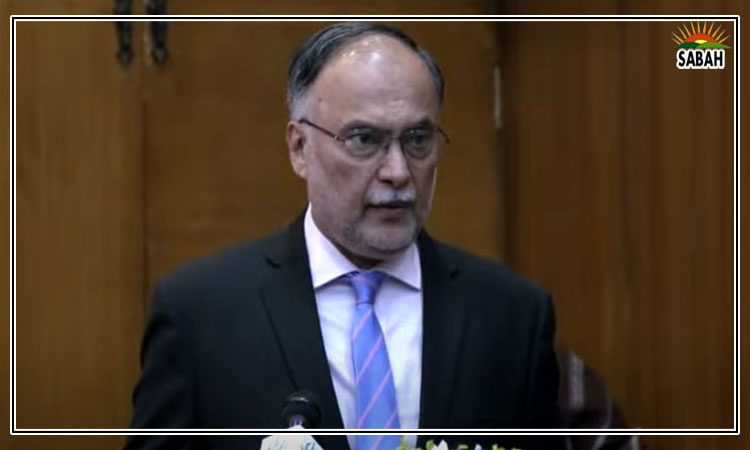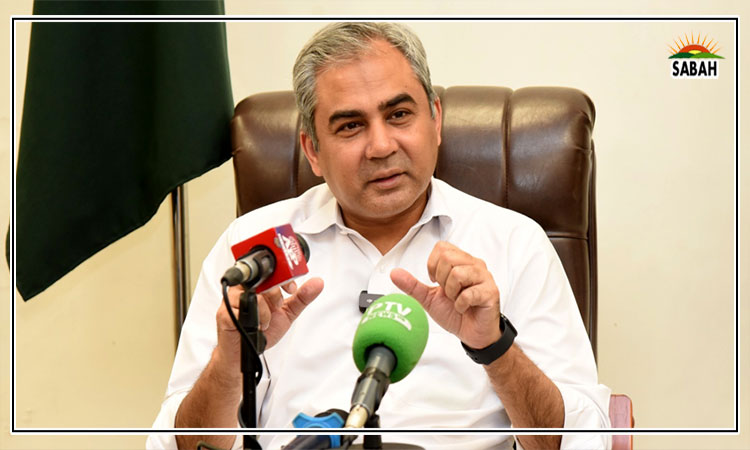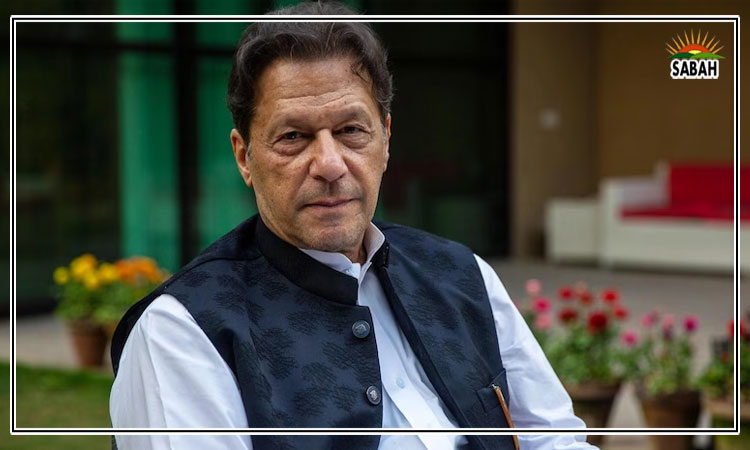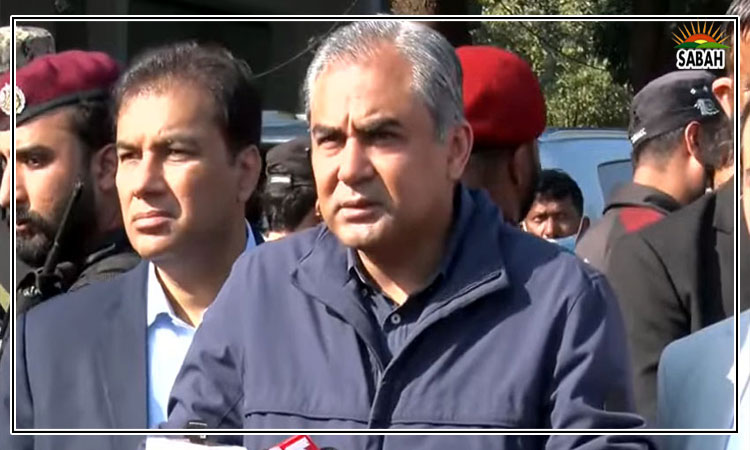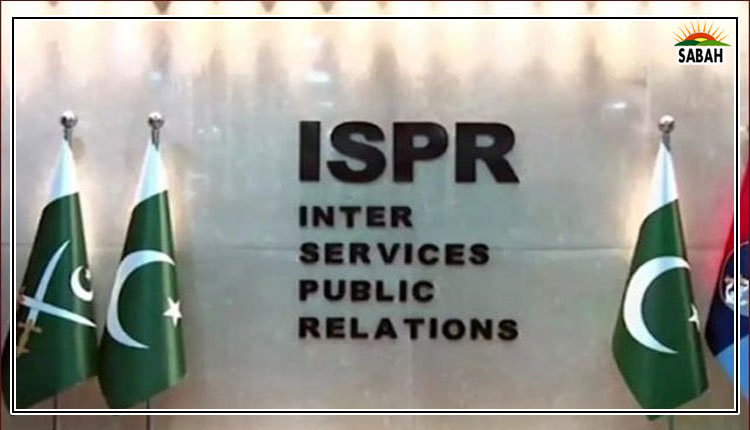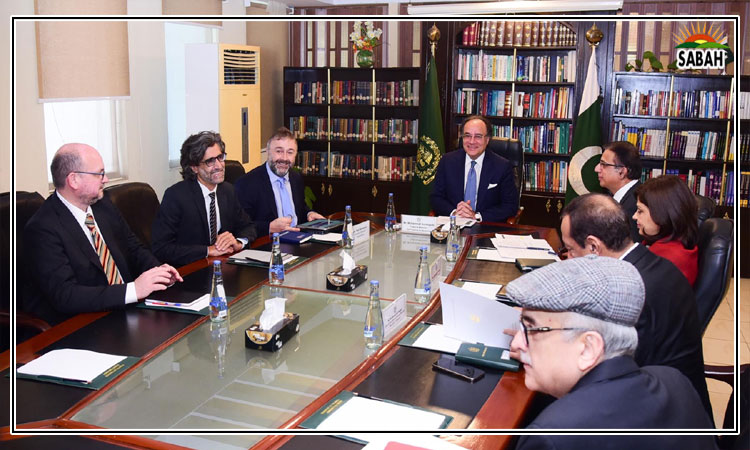No valid evidence was found during Kenya visit, JIT tells SC in senior journalist & anchorperson Muhammad Arshad Sharif murder case
ISLAMABAD, Feb 13 (SABAH): The Joint Investigation Team (JIT) formed to probe murder of senior journalist and anchorperson Muhammad Arshad Sharif told the Supreme Court of Pakistan that no valid evidence was found during Kenya visit and also cited lack of cooperation from authorities of the East African countries.
A five-member bench, headed by the Chief Justice of Pakistan Justice Umar Ata Bandial and comprising Justice Ijazul Ahsan, Justice Sayyed Mazahar Ali Akbar Naqvi, Justice Jamal Khan Mandokhail and Justice Muhammad Ali Mazhar heard the suo motu notice case on Monday.
In October last, the senior journalist was shot dead by the Kenyan police in what they claimed a “mistaken identity” case while he was returning to Nairobi from Kenya’s Magadi Town. The Kenyan police claimed that they opened fire after the vehicle breached a blockade. Following the murder, the top court took suo motu notice and ordered an inquiry in the murder case.
During Monday’s hearing, JIT head Awais Ahmed submitted the second progress report on the probe into the killing of the senior journalist. When Justice Naqvi inquired if the JIF found something in the case during Kenya visit.
Awais Ahmed said the team found no solid evidence in Kenya, adding that the authorities of the foreign country did not provide access to the JIT to the evidence in the case. To which, Justice Naqvi said discussion regarding evidence will be made during the trial, saying the court this time wanted to know what material they had collected in Kenya.
In reply to a question by Justice Ijazul Ahsan, the JTI head said the mobile phone and ipad of Arshad Sharif were in custody of the Kenay’s IT department, adding that other belongings had been received.
The Additional Attorney General Chaudhry Aamir Rehman, who also attended the hearing, said people who had registered cases against Arshad Sharif were also be interrogated, adding that it would be premature to name someone as perpetrator in it.
In reaction, Justice Naqvi reprimanded the additional attorney general, saying what he had told was first part of the investigation and it was still incomplete. “Don’t play with court,” the judge rebuked the government lawyer.
At one point, CJP Bandial remarked the investigation in Pakistan was marred by multiple mistakes. He also expressed resentment over leaking of the fact-finding report in the case. “Find the person who is behind leaking the unverified report,” he remarked.
When Justice Muhammad Ali Mazhar asked if statements of two suspects Khurram Ahmed and Waqar Ahmed – the two Pakistanis who had hosted Arshad Sharif in Kenya – had been recorded, the additional attorney general said the Kenyan authorities only arranged a meeting with director public prosecutor. He said Kenya officials had assured full cooperation in the investigation but did not allow the JIT members to visit the crime scene. “Diplomatic pressure is also being put on Kenya,” he said.
When Justice Ahsan said the platform of the United Nations could be used to push Kenya for cooperation in the investigation, the additional attorney general said Kenya was a friendly state and “we don’t want to take step that would damage the bilateral relations”.
CJP Bandial said Kenya is an independent state and a respectful ways should be adopted to talk with the foreign country.
Additional Attorney General Chaudhry Aamir Rehman told the court that two reports on Arshad Sharif’s murder had been submitted in court, one by the Foreign Office and the other by the SJIT.
He said that the Kenyan authorities had accepted Pakistan’s request for mutual cooperation in the investigation. “Kenyan authorities have started taking legal action against the two police officials who opened fire at Arshad Sharif’s car.”
However, JIT chief Owais Ahmed said the investigation team had not yet received any material related to Arshad Sharif’s murder.
“Kenyan officials are not granting us full access needed for the investigation,” he told the court.
At that, AAG Rehman also said that Kenyan authorities had not yet given Pakistan complete access to the crime site. “They have only expressed agreement over mutual legal cooperation.”
Upon hearing this, Justice Naqvi said: “Tell the court clearly whether you have found strong evidence from the investigation conducted in Kenya or not.”
The JIT chief responded that the team was “in contact” with the Kenyan and UAE authorities. He added that the JIT had met doctors and police officials in Kenya, while the UAE officials had yet not allowed the team to conduct an investigation there.
At that, Justice Bandial said that Kenya was a sovereign country and “we should not blame anyone”.
“We have to instead see if the special JIT has correctly conducted investigations in Kenya and UAE,” the top judge remarked, adding that it was yet to be seen if the team was even ready for the investigation.
The CJP pointed out that “mistakes were made both in Pakistan and abroad” in the case.
“Why and on whose directions was the fact-finding committee’s report released,” he asked, observing that the report’s release had alerted the suspects.
“Did the special JIT conduct an inquiry on all the points presented in the Fact-Finding Committee’s report? Which foreign agencies have the special JIT requested cooperation from,” Justice Bandial further inquired.
“There is a mess up between contacting Kenya and going there,” he said, adding that it was the responsibility of the Foreign Office to investigate this.
“Something happened after the fact-finding committee’s report was released because of which Kenya is not cooperating anymore,” he noted.
Meanwhile, Justice Mazhar observed that the Kenyan foreign minister had assured the Foreign Office of cooperation. “Then why was the special JIT not allowed to go to the murder site? “The same story is being told to us from the first day,” the judge said.
Here, AAG Rehman stated that it was important to maintain diplomatic relations with Kenya. “This matter is complicated,” he said.
On the other hand, Justice Ahsan said that there were three aspects to Arshad Sharif’s murder. “Who forced him to leave Pakistan? Was an inquiry initiated on who registered cases against Sharif across the country? What was he shown that forced him to leave?
“When all these links are connected, you will automatically find out who wanted to get rid of Arshad Sharif,” he added.
Justice Ahsan then inquired about the whereabouts of Sharif’s mobile phone and other belongings.
“His mobile and Ipad are with Kenya’s IT department,” the JIT head replied, adding that the rest of his belongings had been received.
Here, Justice Naqvi asked where the other JIT members were to which Ahmed replied that three of them were present in the court.
“Why did the rest of the members not come? Is it not the investigation team’s duty to be present [in court],” Justice Naqvi stated.
Later, the top court adjourned the case for one month and sought a progress report from the JIT in two weeks.
The court had issued notices to Secretary Interior, D.G. (F.I.A.), Attorney General for Pakistan, Secretary, Ministry of Foreign Affairs, President PFUJ, D.G. I.B, Secretary M/o Information and Broadcasting, Sh. Mahmood Ahmad, AOR, Adil Aziz Qazi, ASC, Muhammad Saad Umar Butter, ASC, Chaudhry Akhtar Ali, AOR, Shazib Masud, ASC, and Inspector General of Police Islamabad regarding the hearing of the case on Monday.
Senior journalist was killed in the Kenyan capital Nairobi on October 23 where he was living in self-exile.
On December 8, the federal government formed a new special joint investigation team (JIT) formed to probe the murder of senior journalist Arshad Sharif with the Supreme Court (SC).
The new JIT includes members from ISI, IB, FIA and the Islamabad police. The members include DIG Intelligence Branch, Sajid Kiyani, FIA’s Waqarauddin Syed, DIG Headquarters, Owais Ahmed, Murtaza Afzal from the Military Intelligence and Muhammad Aslam from the ISI.


